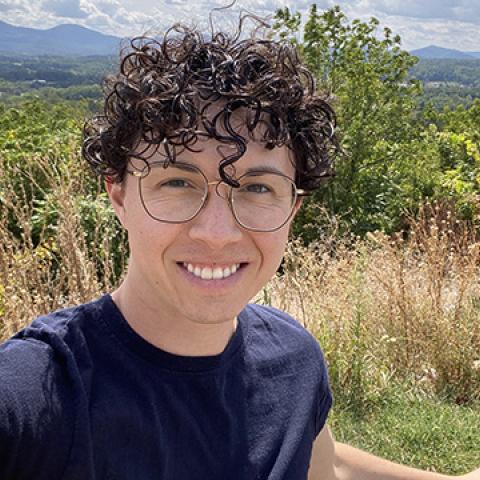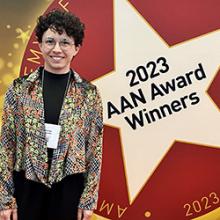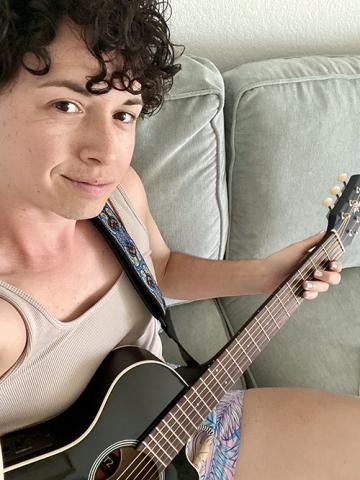Class Year: 2024
Program Major: Doctor of Medicine
Witnessing a physician make insensitive comments about a patient during rounds last year initially offended fourth-year medical student Trenley Anderson. But then, it motivated them to take action. The incident ignited a passion in Anderson to change the status quo of patient-physician interactions and inspired an award-winning essay.
“The comments disparaged the patient who identified as non-binary, used they/them pronouns and was being treated for a functional neurological disorder,” said Anderson. “I didn’t really know how to process it, because I also identify as non-binary and was starting to introduce my preference for they/them pronouns.”
After months of reliving the moment, Anderson wrote an essay, titled “The Neurologist’s Dragon.” In it, Anderson recounts the interaction and explores how clinicians navigate neurological disorders, struggle with “difficult” patients and are often ill at ease around those who are “different.” Their efforts earned Anderson the American Academy of Neurology G. Milton Shy Award.
The author takes a unique approach in this essay to highlight an important topic while also accurately highlighting the difficulty that many of us face in dealing with a functional presentation. A deeper analysis is drawn into how our interactions as neurologists shape the care and dialogue we have with patients or scenarios for which it is uncertain. These are important scenarios every neurologist has experienced, and this essay dissects them in a very refreshing and thought-provoking way. —Feedback provided by The American Academy of Neurology essay judges
After graduation, Anderson is looking forward to focusing on child neurology as a resident. They say education about gender diversity and familiarity with many types of people may help prevent patient-physician biases, stressing that respect is integral.
“These are real people who have feelings and individual experiences that are directly related to the way we perceive them and the way we treat them,” said Anderson, who initially didn’t talk about the incident, but has since found their voice. “At least one person needs to speak up. That’s how you achieve progress.”
Anderson knows there is a fine line between harmony and dissonance. They studied music and studio art as an undergraduate at the University of Virginia, earned a master’s degree in music from New York University and explored a career as a clarinetist before enrolling in medical school.
“As an undergraduate, I was fairly certain I wanted to be a physician,” said Anderson. “But, I had to rule out careers in music before moving forward.”
When the Virginia native decided to apply to medical schools, it didn’t take long to choose Case Western Reserve University.
“I left my first interview saying ‘What just happened? I love it here!’” said Anderson, who was immediately impressed with University Circle’s culture and the medical school's curriculum and offerings.
Once enrolled, they knew they made the right choice.
“I feel so lucky to be studying medicine with so many kind, smart, well-rounded people,” said Anderson, adding that they are grateful for many School of Medicine mentors as well.
Anderson’s advice for finding the right career path is universal.
“Ask: What are you good at, what do you like to do, what does the world need and what’s going to give you employment?” said Anderson. “If you meet those four criteria, then you’re probably going in the right direction.”
In their free time, Anderson likes to draw, play with their cats and has shared their musical talents in previous Doc Opera shows.




